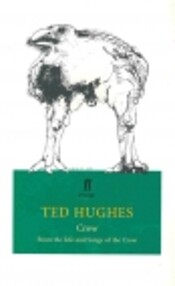Tahar Ben Jelloun "A Palace in the Old Village" ((Arcadia Books)

Mohammed left Morocco as a young man to work in an automobile plant in France. He later brought his family to France. It has now been forty years and Mohammed is now facing retirement, which he considers unimaginable. The important things in this illiterate man’s life are his faith, his family, and his work routine. As the latter comes to an end, he becomes reflective and turns towards the other two things to fill the gap. The thing is, while Mohammed has been in 40 years in France, he never really has ‘left the old country, while his children have grown up and assimilated into the culture around them—some even obtaining permanent citizenship.
To some extent, this is a story of parents and children. Those of us with grown children know that children are not ours forever (sometimes we learn this painfully and repeatedly). Mohammed understands this, but like any good parent he worries and frets about his children (this one has married a Christian, that one never calls...etc); it’s just that there’s not just the parent-child gap here, there’s a cultural generational gap too. One cannot help sympathize with Mohammed, who is kind, honorable, old-fashioned and doomed to be disappointed.
The story is also about what his faith means to him. His culture and faith are intricately tied together and we learn about both together. As we learn about how Mohammed thinks, we understand how big the gap between him and his children really is.
Now retired, Mohammed fantasizes about returning to his old village and building a large house there, big enough for him and his wife, all of these children and their families, for a special prayer room...everything important to him. And he sets about doing this, and as he does, the story begins to drift into something less realistic and more folk tale-like.
This short book is absolutely fascinating for its window into another culture very different than our own. And I think the unusual change in the nature of the narrative at the end of the story fits very nicely with Mohammed's search for ‘home’.

Mohammed left Morocco as a young man to work in an automobile plant in France. He later brought his family to France. It has now been forty years and Mohammed is now facing retirement, which he considers unimaginable. The important things in this illiterate man’s life are his faith, his family, and his work routine. As the latter comes to an end, he becomes reflective and turns towards the other two things to fill the gap. The thing is, while Mohammed has been in 40 years in France, he never really has ‘left the old country, while his children have grown up and assimilated into the culture around them—some even obtaining permanent citizenship.
To some extent, this is a story of parents and children. Those of us with grown children know that children are not ours forever (sometimes we learn this painfully and repeatedly). Mohammed understands this, but like any good parent he worries and frets about his children (this one has married a Christian, that one never calls...etc); it’s just that there’s not just the parent-child gap here, there’s a cultural generational gap too. One cannot help sympathize with Mohammed, who is kind, honorable, old-fashioned and doomed to be disappointed.
The story is also about what his faith means to him. His culture and faith are intricately tied together and we learn about both together. As we learn about how Mohammed thinks, we understand how big the gap between him and his children really is.
Now retired, Mohammed fantasizes about returning to his old village and building a large house there, big enough for him and his wife, all of these children and their families, for a special prayer room...everything important to him. And he sets about doing this, and as he does, the story begins to drift into something less realistic and more folk tale-like.
This short book is absolutely fascinating for its window into another culture very different than our own. And I think the unusual change in the nature of the narrative at the end of the story fits very nicely with Mohammed's search for ‘home’.
